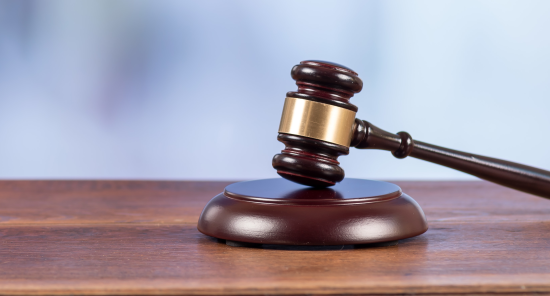
When someone files a discrimination complaint, CRD evaluates the facts and decides whether to accept the case for investigation. If it accepts the case, CRD independently investigates the facts and the legal issues. This involves reviewing respondents’ responses to complaints and other information and evidence that complainants and respondents submit, among other things. CRD attempts to resolve the dispute in appropriate cases. CRD may also decide to take legal action.










If you feel you were the victim of discrimination, CRD is available to investigate and help settle your complaint. To begin this process, gather the information listed below and file an intake form in one of three ways:
If you decide to use the CRD investigation process, you will need to gather the following:
In employment cases, you must do this within three years of the date you were harmed. In most other cases, you must do this within one year of the date you were harmed. In employment cases only, you must obtain from CRD a Right-to-Sue notice before filing your own lawsuit in court. If you would prefer not to use the CRD investigation process and instead file your own lawsuit, you can obtain an immediate Right-To-Sue notice.
CRD will evaluate the allegations in the intake form and decide whether the laws that CRD enforces cover these allegations.
Understand that CRD can only investigate violations of certain civil rights laws. While many people believe they were treated unfairly, CRD can only accept cases if one of the laws it enforces may have been violated. If your complaint is not accepted for investigation, it is not because CRD does not believe you were treated unfairly. Rather it is because your complaint, if proven, would not violate the civil rights laws that CRD enforces.
If these laws cover your allegations, CRD will prepare a complaint form for your signature. When you return the signed complaint, it will be delivered to the person or entity that you believe discriminated against you (called the respondent).
In most cases, the filing of a complaint does not mean that CRD has already determined whether there is reasonable cause to believe any laws have been violated. Instead, it means that CRD has preliminarily determined that the laws that the department enforces cover the complaint’s parties and allegations.
Although CRD may provide legal services and advice for complainants who are seeking relief for alleged civil rights violations, the department independently investigates and assesses the facts and legal issues in each case. These investigations and assessments include, among other things, reviewing information and evidence from complainants, respondents, or other sources. When a respondent answers a complaint, CRD reviews it with the complainant.
As appropriate or required by law, CRD attempts to resolve complaints through the free dispute resolution services that that CRD offers to parties.
Unless a complaint has already been resolved, CRD uses the facts obtained through its investigation to determine if there is reasonable cause to believe that a law the department enforces has been violated. If not, the case is closed. If there is reasonable cause, CRD notifies the parties of this determination and may notify them that the department intends to file a lawsuit in court.
But before CRD files a lawsuit, it typically requires the parties to go to mediation. This mediation provides another opportunity to reach an agreement to resolve the dispute. If the case is not settled during this mediation, CRD may proceed with filing its lawsuit in a court.
In order for CRD to prepare a complaint and initiate an investigation, you will need to provide specific dates when you believed you were harmed. Depending on the facts of your case, you may have the following documents that we recommend you bring to your scheduled intake interview with a CRD representative.
You can respond to a complaint two ways:
If you are served with a complaint, it is only after CRD has screened the information provided to ensure the allegations are with CRD jurisdiction. CRD screens all initial claims and rejects those that do not allege violations of the laws we enforce.. In most cases, the filing of a complaint does not mean that CRD has already determined whether there is reasonable cause to believe a civil rights law has been violated. Rather, it means that CRD has preliminarily determined that the laws that the department enforces cover the complaint’s parties and allegations. We investigate the facts and encourage parties to resolve the dispute in appropriate cases. CRD considers taking legal action if the dispute is not resolved and evidence supports a reasonable cause determination.
If you are served with a complaint, you must provide a response within the time specified by CRD in the letter accompanying the complaint. You are free to hire or consult with a lawyer, but the process does not require a lawyer. Here is what to expect after you have responded to the complaint:
CRD provides assistance to anyone who needs help accessing and understanding our information. Please contact us to arrange an accommodation if you have a disability or need translation into your native language.
You can check the status of your pending complaint:
If a party is dissatisfied with the outcome of the investigation, and the case has not been settled or accepted by CRD to file a lawsuit in court, that party may appeal CRD’s closure of the case. The first step in filing an appeal with CRD is to review the closure letter you received. The closure letter will state that you have ten (10) calendar days from receipt of the closure letter to submit an appeal, and will provide instructions on what the appeal should contain. It is important that your appeal clearly state what specifically you would like reviewed during the appeal. For example, if CRD was unable to interview all of your witnesses or gather certain evidence, your appeal should identify the name of the witness and provide their contact information or specify the evidence that you believe was overlooked. Or, if you believe that CRD misapplied the law, your appeal should describe what you understand the law to be.
An appeal is not an opportunity to re-do an investigation. Therefore, you should try to provide all relevant information during the investigation.
The closure letter will direct you to submit your appeal to one of the following:
Once you submit your appeal to the appropriate person or unit, you can expect the following:
To check the status of your pending appeal, contact the person or unit you submitted your appeal to. Be sure to include your assigned CRD case number on all correspondence.
Yes. Do not hesitate to contact the assigned investigator to discuss the complaint. If the file contains additional non-confidential information about the allegations that are not shown on the official complaint, the investigator verbally may share this information with the respondent.
CRD seeks a response to all the allegations in the complaint, along with the production of documents and identification of witnesses with information that is relevant to the complaint. This information will assist the department in assessing the complaint’s claims and allegations. It is in the Respondent’s interest to provide an effective position statement that focuses on the facts. An effective response is clear, concise, and complete. It should explain the Respondent’s version of the facts and specifically identify relevant specific documents, evidence, and witnesses. This will can help CRD accelerate the investigation and tailor its requests for additional information.
Firing an employee for filing a complaint with CRD is illegal retaliation. If you disciplined an employee for violating a company policy or for poor performance, without any intention of firing the employee, you will be in violation of the Fair Employment and Housing Act (FEHA) if you discharge the employee for filing a complaint.
As an employer, you cannot file an employment discrimination complaint with CRD against an employee. CRD investigates only complaints filed by individuals who believe they have been the victim of unlawful discrimination in violation of the FEHA. However, if an employee refuses or threatens to refuse to comply with the FEHA, you can file a complaint with CRD asking for assistance through mediation or other remedial action.
CRD does not share investigative records of open case files Once a case is closed, parties may request copies of the file. The information CRD releases is governed by the Public Records Act and relevant privileges.
CRD retains records for three years after a case is closed.
800-884-1684 (voice), 800-700-2320 (TTY) or
California's Relay Service at 711
contact.center@calcivilrights.ca.gov